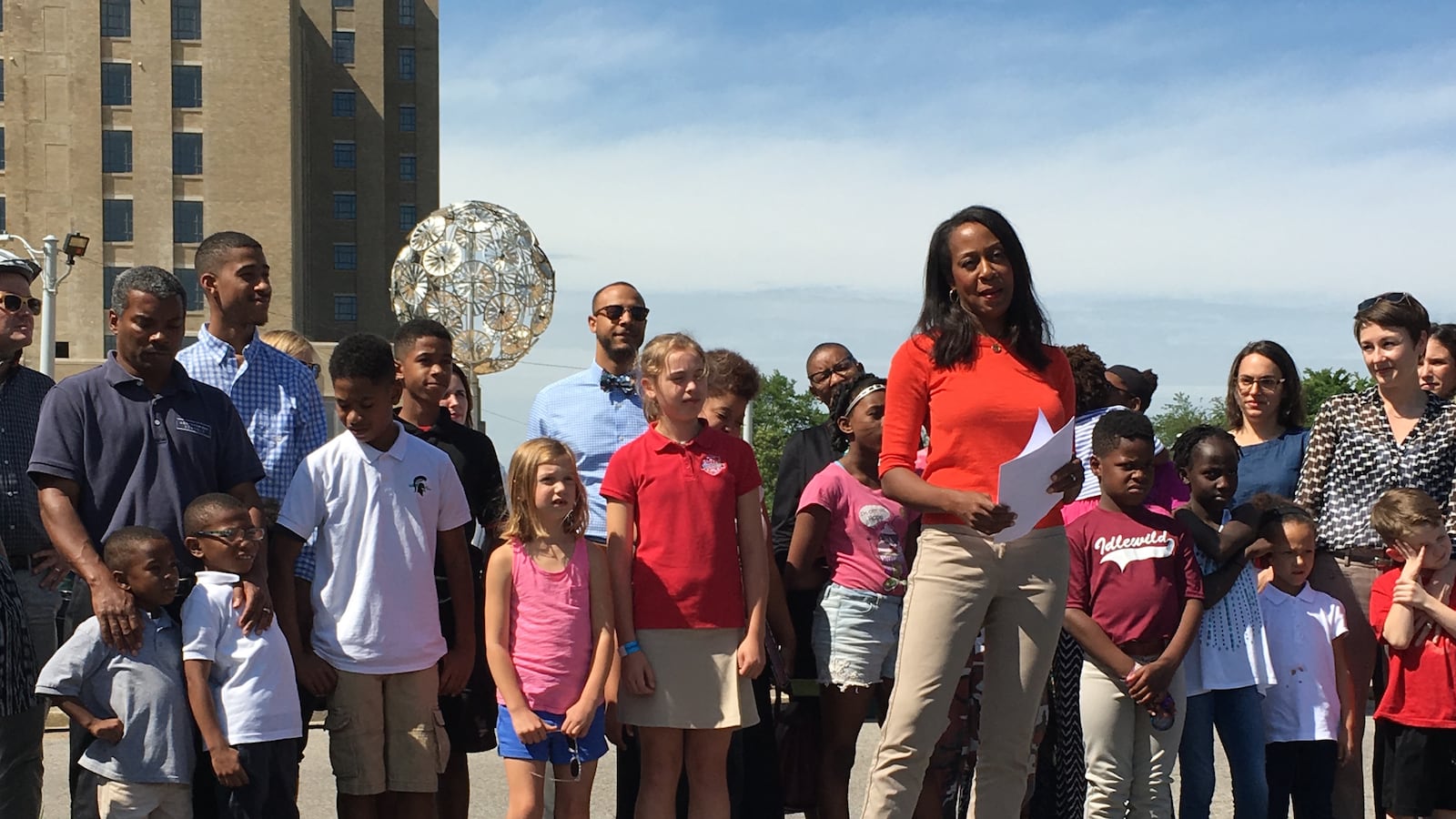With a charter now in their hip pocket, backers of Crosstown High School are assured of a path toward creating a new kind of high school in Memphis. But that doesn’t mean they’ll choose the charter option.
Leaders have said all along that they’d prefer governance under a contract model, and that hasn’t changed.
“We’re still keeping all options open and will pursue the model that will allow us to recruit the a diverse student body and open our doors as expeditiously as possible,” spokesman Kerry Hayes said on Wednesday. “That said, we are obviously very grateful that (Shelby County Schools) has granted our charter and shares our overall vision for our school.”
The school board approved Crosstown’s application Tuesday night on a 7-2 vote, clearing the way for the school to open in August of 2018 with 125 ninth-graders. This is a change for the future charter in the city’s midtown area, which originally planned to open in fall of 2017 with a 500-student body. Supporters say Crosstown will be a diverse college prep school that should help Shelby County Schools recapture middle-class families who have fled the district over the years.
“Approval of our charter application allows us to move forward with hiring leaders and faculty for our school, beginning construction, and executing a plan to recruit a diverse student body and staff,” said John Smarrelli, chairman of Crosstown’s board of directors and president of Christian Brothers University, a partner in the project.
A contract model, similar to Campus Elementary School operated by the district in partnership with the University of Memphis, would give Crosstown more control over student enrollment. That track would also have to be approved by Shelby County’s school board, which has been lukewarm about the idea thus far.
Both options would be publicly funded and could have an independent board. (Read our coverage of Crosstown’s charter versus contract option here).
The differences:
- A contract school would give its board more control over student enrollment.
- A charter school must be open to all students. Charters typically use a lottery system for admissions.
Crosstown High has been a high-profile idea since its inception in 2015. It’s among 50 finalists for one of at least five $10 million prizes from a national contest backed by Laurene Powell Jobs, the widow of Apple co-founder Steve Jobs, to reimagine what U.S. high schools could be. Winners are expected to be announced publicly on Sept. 14.
The school is to be housed in Crosstown Concourse, a high-rise building being redeveloped in a former Sears warehouse built in the 1920s. Crosstown would occupy the fourth and fifth floors, and other building tenants would be mostly from educational, healthcare and retail sectors.
Update, Sept. 7, 2016: Crosstown board members announced that the school is no longer planned to open fall of 2017 as a 500-student charter. The new plan is for Crosstown to open a year later, in August of 2018, with 125 ninth-graders. It will eventually grow to capacity at 500 students.
Correction, Aug. 25, 2016: This story has been corrected to show that the school board voted 7-2 to approve Crosstown’s application. A previous version incorrectly stated that the vote was unanimous.

